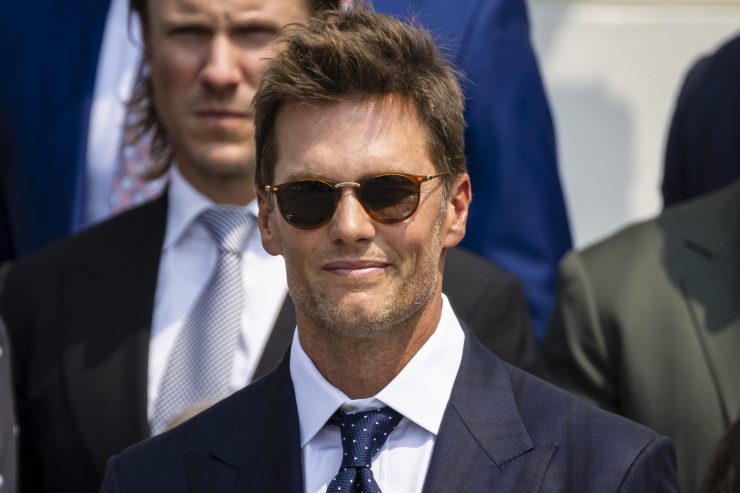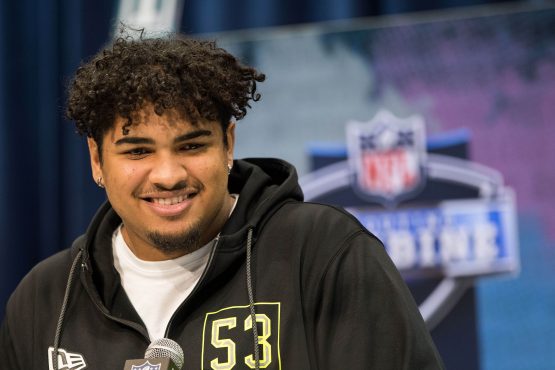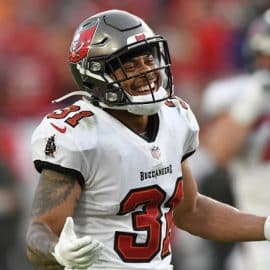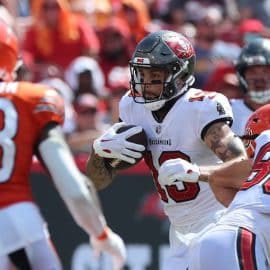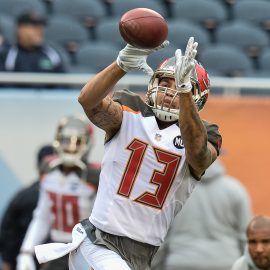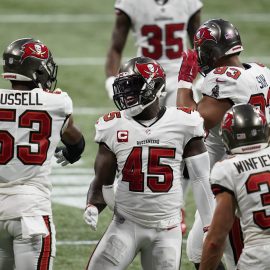The 2022 ESPY Awards takes place on Wednesday from Los Angeles, California. Here are the last 10 winners for male athlete of the year.
2021–Tom Brady–Tampa Bay Buccaneers
The Buccaneers quarterback is still going strong at age 44. This past season he led the National Football League in pass completions (485), passing yards (5316), touchdowns (43), and yards per game (312.7). Tampa Bay won the NFC South with a record of 13 wins and four losses.
2019–Giannis Antetokounmpo–Milwaukee Bucks
The NBA’s most valuable player in 2019, Giannis Antetokounmpo of Athens, Greece averaged 27.7 points per game and 12.5 rebounds per game in 2018-19. He also had a field goal percentage of .578, three-point percentage of .256, and a free throw percentage of .729 as a power forward.
2018–Alexander Ovechkin–Washington Capitals
The captain for the Washington Capitals from Moscow, Russia, won the Rocket Richard Trophy, Conn Smythe Trophy, and Stanley Cup all in the same season. He had 51 goals and 38 assists for 89 points in 81 games during the regular season. In the playoffs, Ovechkin had 15 goals and 12 assists for 27 points in 24 games.
2017–Russell Westbrook–Oklahoma City Thunder
The 2017 NBA Most Valuable Player averaged a triple double throughout the year. He averaged a NBA-high 31.6 points per game, 10.7 rebounds per game, and 10.4 assists per game. The point guard from Long Beach, California also had a field goal percentage of .425, three-point percentage of .343 and free throw percentage of .845.
2016–LeBron James–Cleveland Cavaliers
In 2016, LeBron James led the Cleveland Cavaliers to their first and only championship in NBA Finals history. He averaged 25.3 points per game, 7.4 rebounds per game, and 6.8 assists per game. The native of Akron, Ohio, had a field goal percentage of .520, free throw percentage of .731, and three-point percentage of .309.
2015–Stephen Curry–Golden State Warriors
In 2015, Stephen Curry led the Warriors to their first championship in 40 years. The point guard from Akron, Ohio led the NBA in free throw percentage (.914) and had 23.8 points per game, 7.7 assists per game, 4.3 rebounds per game, had a field goal percentage of .487, and a three-point percentage of .443.
2014–Kevin Durant–Oklahoma City Thunder
In 2014, Durant had a NBA-high and career-high 32 points per game with the Thunder in being named NBA MVP. He averaged 7.4 rebounds per game, 5.5 assists per game, a field goal percentage of .503, a three-point percentage of .391, and a free throw percentage of .873. It was the fourth time in five years Durant led the NBA in scoring.
2013–LeBron James–Miami Heat
In 2013, James was the NBA MVP, NBA Finals MVP, and won the NBA Finals. He averaged 26.8 points per game, eight rebounds per game, and 7.3 assists per game. James had a field goal percentage of .565, free throw percentage of .406, and a three-point percentage of .753.
2012–LeBron James–Miami Heat
In 2011-12, James won the NBA Finals, was the NBA MVP, and won the NBA Finals MVP. He averaged 27.1 points per game, 7.9 rebounds per game, and 6.2 assists per game. James had a field goal percentage of .531, three-point percentage of .362, and free throw percentage of .771. One could make the argument it was in the postseason where James excelled the most. He averaged a NBA playoff high 30.3 points per game.
2011–Dirk Nowitzki–Dallas Mavericks
In 2010-11, the Dallas Mavericks won their first NBA Finals in franchise history and Nowitzki was named NBA Finals MVP. He averaged 23 points per game, seven rebounds per game, and 2.6 assists per game. Nowitzki had a field goal percentage of .481, three-point percentage of .421, and free throw percentage of .915.
Add The Sports Daily to your Google News Feed!
